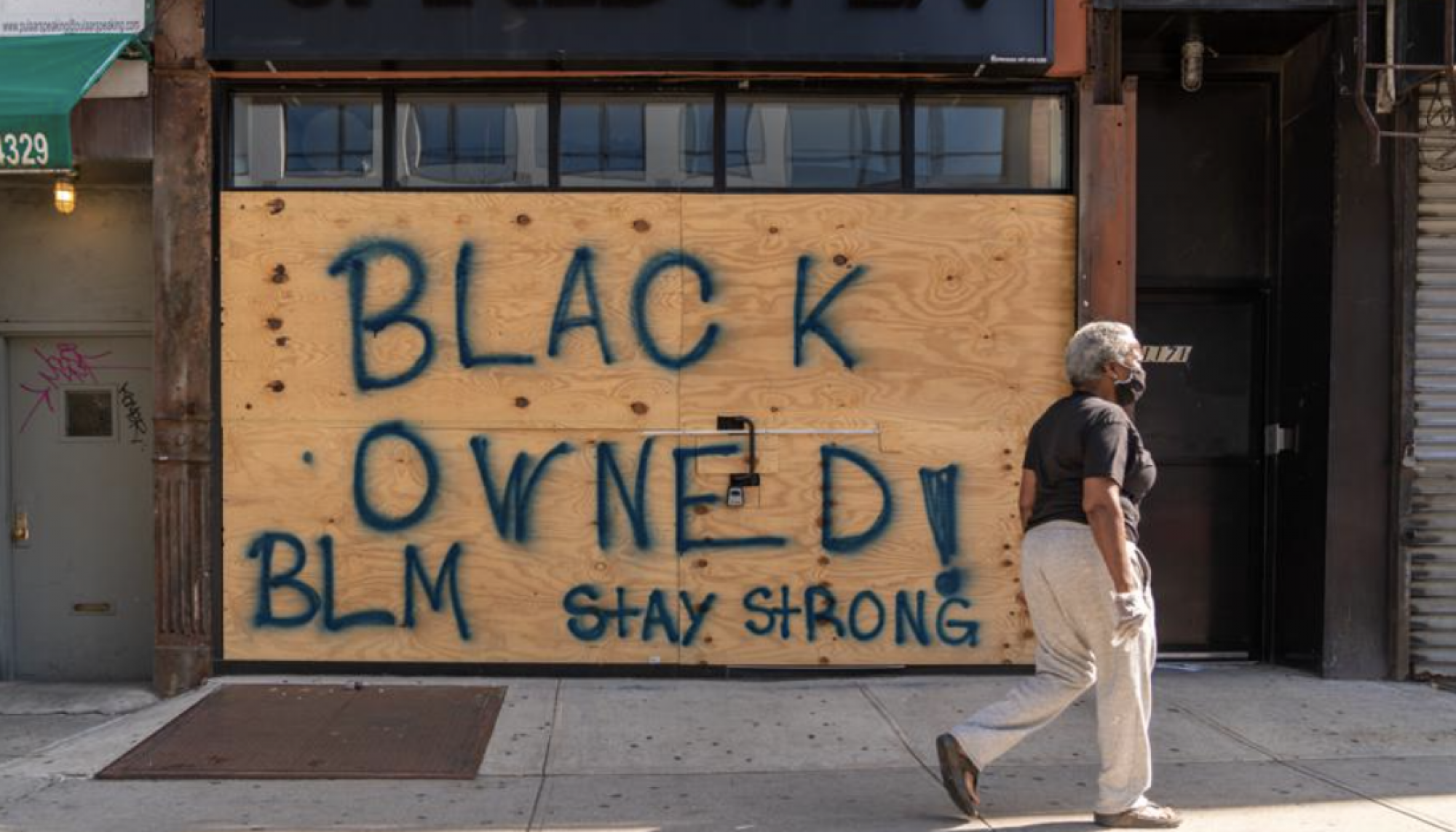Atira Lyons was thrilled to see so many people line up in front of her luxury durag store on its opening day. She expected a few people to stop by but was shocked to see the line wrap around the store three times. She gives credit to the Black Lives Matter movement.
The Black Lives Matter movement is a trend that resurfaces almost every year. People rush to social media to hashtag BLM when a Black person dies at the hands of police.
But this year’s movement sparked a bigger change than just online activism. Many people showed their support by pouring money into Black-owned businesses.
According to a recent Yelp report, there was a 7,043% increase from the previous year in searches for Black-owned businesses from May 25 to July 10.
Since then, searches have dropped significantly, leaving Black business owners wondering if this is a lasting change or a fast trend?
I asked three Black female business owners to share their experiences with the pandemic and racial injustices, and how the Black Lives Matter movement has affected them.
“I don’t see it being as popular as it is now, it seems like the trend is already dying down.”
Voni Ganther
Voni Ganther is a 22-year old stylist and designer who started her business, Voni Aesthetics, two years ago.
Ganther sells thigh bags, a coin purse that fastens around the thigh area used for activities like festivals, roller skating, biking, etc.
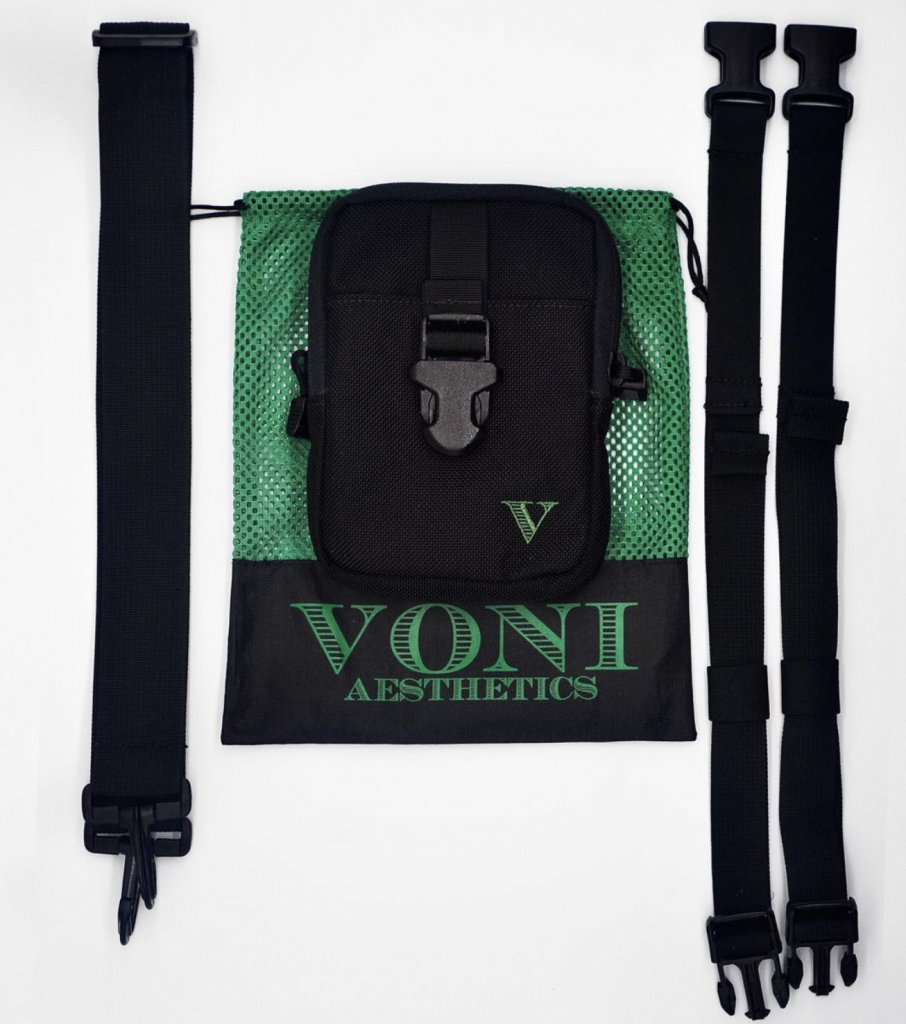
She came up with the idea one day while working as an intern for a stylist.
Her fanny pack was in the way of her work so she tied it around her leg.
“It worked for a little bit but I thought how much easier it would be if there was such a thing as a thigh bag,” she says.
In March of 2018 she had her first prototype ready to purchase online.
Born and raised in Northridge, California, Ganther studied at Spelman College in Atlanta, Georgia and the Fashion Institute of Design and Merchandising in Los Angeles.
“FIDM basically inspired me to start my own business,” she says.
Ganther always loved dressing up as a little girl. She remembers being just shy of five-years old playing in her mom’s heels and makeup. “I had no business putting on red lipstick and heels way too big for me, but it was fun, it was me.”
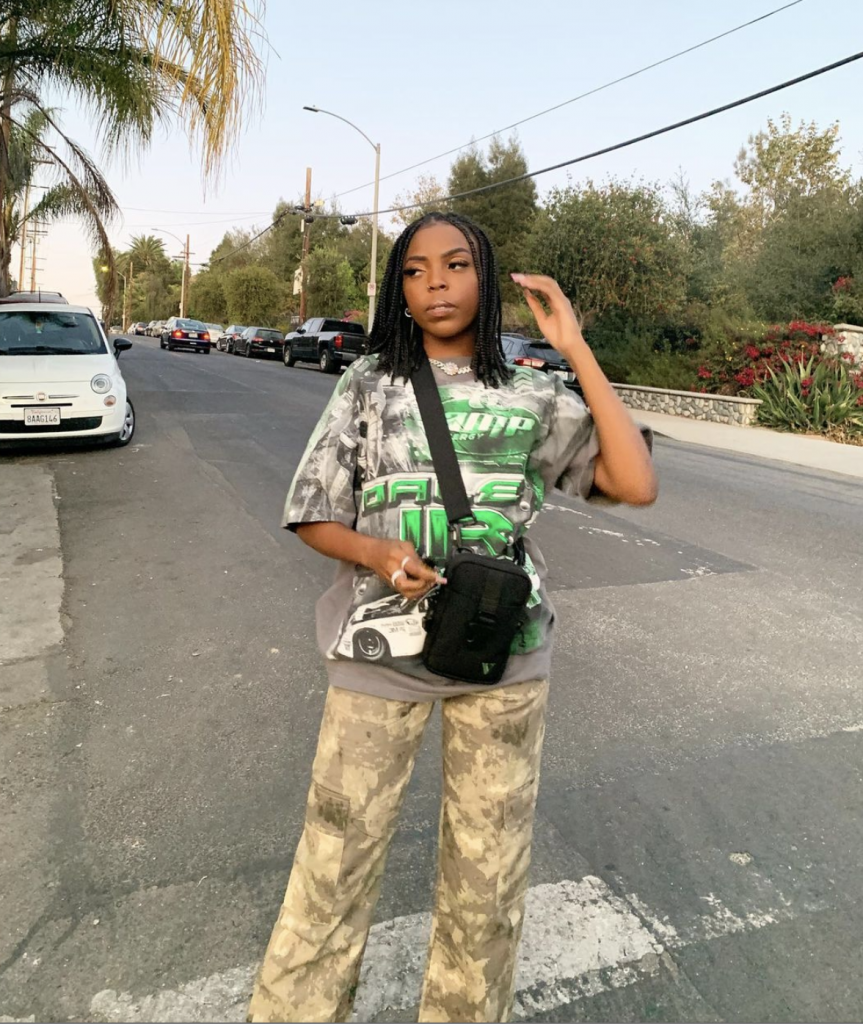
Since her launch in 2018, Ganther has sold over 100 bags, slowly building her brand.
She had hoped to release a new line of thigh bags with the profit she’s made, but then the pandemic hit.
“The pandemic really slowed everything down,” she says.
“Since I was forced to put a hold on production, I wasn’t able to sell my product.”
The National Bureau of Economic Research states that Black-owned businesses were hit the hardest by COVID-19 compared to other racial groups. The first estimates from April 2020 for Black business owners in the United States indicate a 41% drop in Black businesses.
Ganther says the Black Lives Matter movement has not affected her business, since there was a pause on production due to the pandemic. She’s unsure if the push to support Black-owned businesses will continue into next year.
“I don’t see it being as popular as it is now,” she says, “It seems like the trend is already dying down.”
She’s right, according to a recent report from Google Trends for the U.S.
A 12-month graph illustrates the term, “Black-owned” reached its peak during the period of May 31 to June 6, 2020. Since then, there is a significant downward trend for the search of the word with a few spikes between June and July.
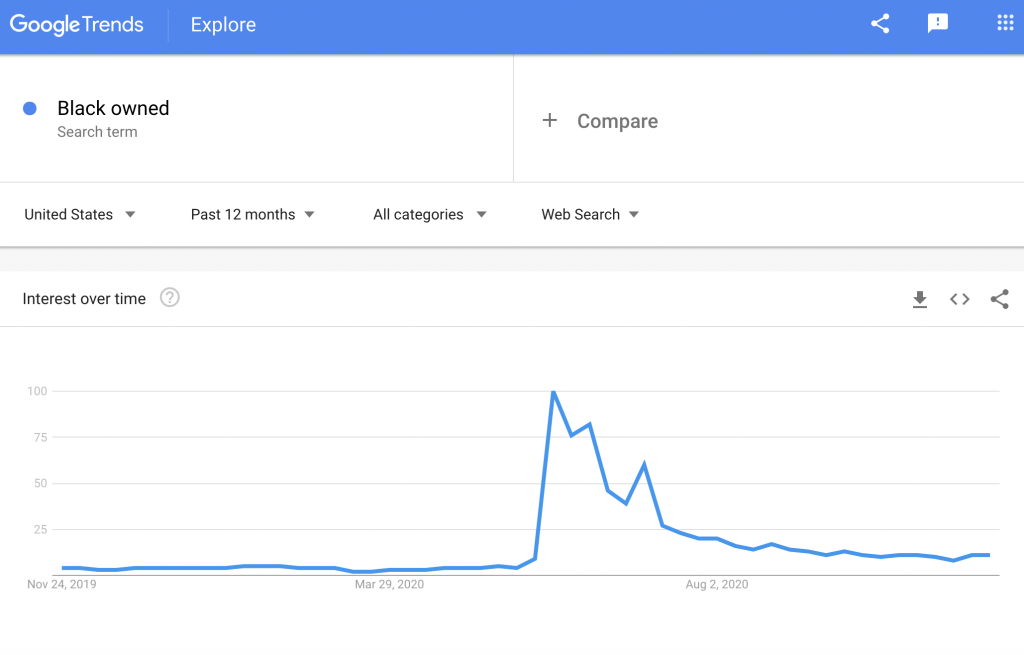
Ganther is in the process of reworking and expanding her company. “I’ve been wanting to relaunch my business, so the pandemic gave me time to rethink my business plan,” she said. Ganther plans to relaunch her thigh bags later this year, along with releasing her first clothing line collection in 2021.
“I hope people will continue to support us and our communities because they want to make a change and it’s not just a trend.”
Atira Lyons
Atira Lyons, now just 20 years old, opened the first ever luxury durag store on Melrose Avenue in Los Angeles on September 4th. Despite the struggles Black business owners are facing due to COVID-19, Lyons has managed to thrive.
“My grand opening was a huge success. The line wrapped around the block three times. I couldn’t believe all the love and support people were showing me.”
Lyons started her business online three years ago and went viral on Twitter around October 2017. Fast forward to 2020, she has now opened her own store and has seen an increase of support from people online.
As the Black Lives Matter movement ignited, that support only multiplied.
“The Black Lives Matter movement gave my store more attention than it’s ever had. Of course it helped that I already had a following online, but the movement definitely sparked more people’s interest,” Lyons said.
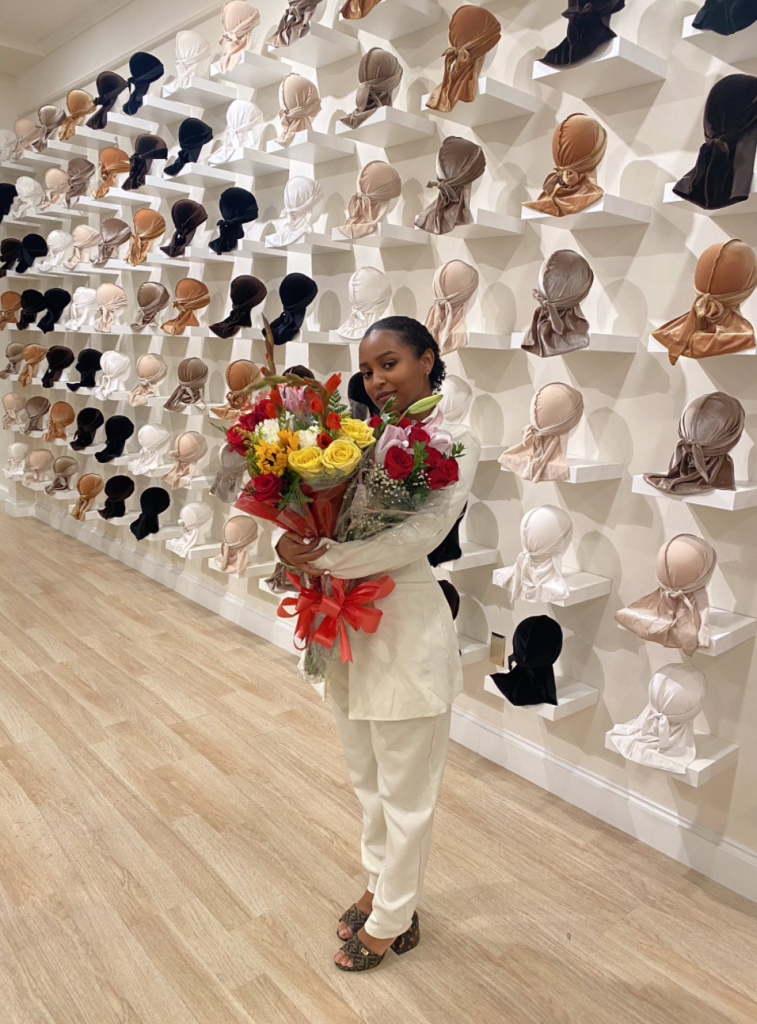
Lyons grew up in Los Angeles, California and always had dreams of becoming a successful entrepreneur.
She came up with the idea of luxury durags while playing around in one of her high school classes.
“I’m just really into velvet, I love it so much,” she says. “I thought to myself why not make a velvet durag. I’ve never seen anyone make that before.”
Durags are a form of headwear made to protect and nourish men’s curls.
Traditionally they are worn to bed, but recently they have become a fashion statement worn by men and women.
“My durags are meant to be an accessory to your outfit. I don’t want them worn to sleep, I want them worn out, “ she says. “They are everyday fashion pieces and no one should feel ashamed for wearing one outside.”
Lyons was able to fund her dream without using any loans, saving up her own money until she could buy her own store.
“Black-owned businesses usually have a harder time securing bank loans,” Lyons says. “I didn’t want to go through that hassle so I saved up until I had the money for an onsite store. “
Since her opening in September it has only been uphill for Lyons and she credits some of her success to the BLM movement.
“Because I’m a Black-owned store and a Black woman people want to support me even more and I don’t think that would be the case if it wasn’t for this time and space we’re in right now.”
Lyons sees herself as a role model for Black women. She’s hopeful that support for Black-owned businesses will stay strong. “I hope people will continue to support us and our communities because they want to make a change and it’s not just a trend.”
“I was heartbroken for so many reasons, but I wasn’t mad at the protesters, they had every right to be angry, I was angry.”
Heather Sanders
Similar to Lyons, Heather Sanders is a businesswoman whose goal is to empower Black women. Sanders is the founder of the fashion label, Sorella Boutique, a shop that sits on Melrose Avenue in Los Angeles.
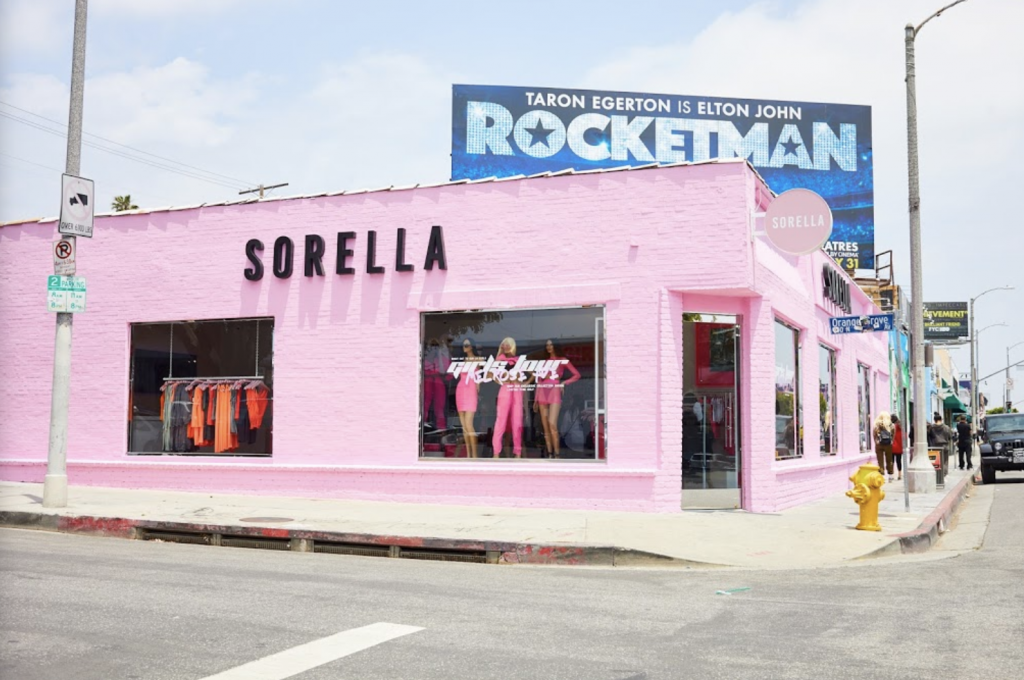
“I come from a place where I didn’t know this was even possible for me. If I can help the next generation of women understand that they can pursue their dreams, then I want to be a part of that.”
The 30-year-old started her business back in 2012 when she was only 20 years old. She had no background in fashion or business, just a dream, hustle and drive when she moved from Dallas, Texas to Los Angeles, California.
Sanders started with only 10 products of inventory in an online store. Every weekend she found herself on the floor of her apartment packing packages for the upcoming week.
“I just remember having to do everything myself, from designing the website to sending out packages. Now here I am eight years later hiring people to work for me.”
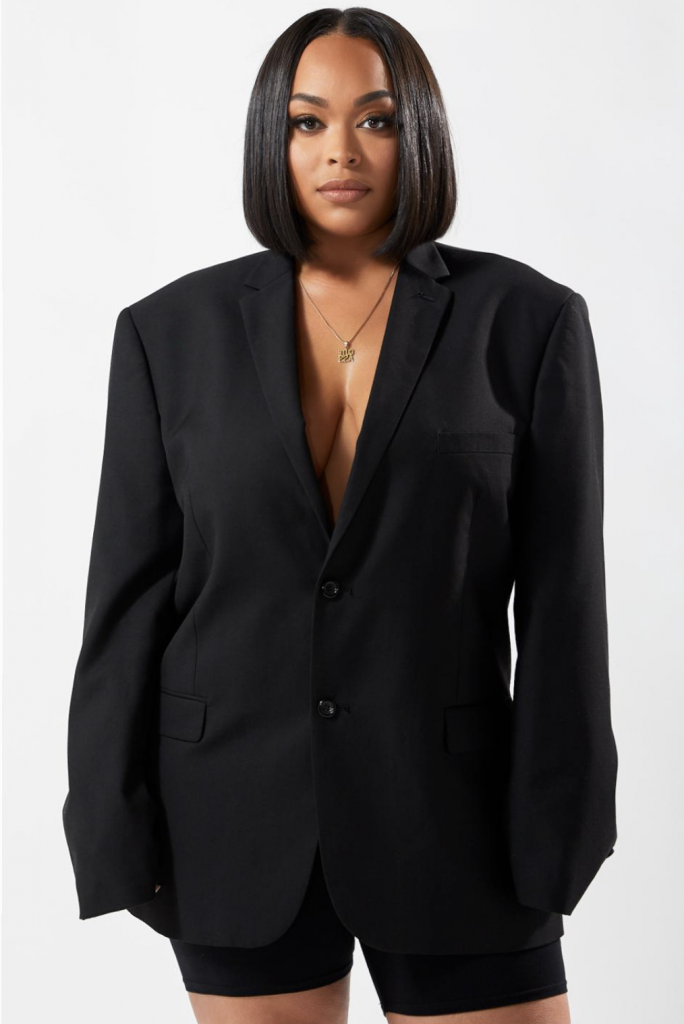
Sanders has spent close to eight years building her brand and developing her business.
She visits the shop about twice a week to keep things in order.
One Monday morning she walked into the store and found broken windows and shopping items in disarray.
“I couldn’t believe my eyes, someone shattered my windows and trashed the store,” she says.
Sorella was caught in the crossfire during the protests that took place following Geroge Floyd’s death in May. Rather than gaining the support of the community for being a Black-owned business, Sanders received vandalized property.
“I was heartbroken for so many reasons, but I wasn’t mad at the protesters,” she says. “They had every right to be angry, I was angry.”
Although the BLM movement impacted her store negatively, Sanders understands the reasoning behind the looting and she still supports the movement.
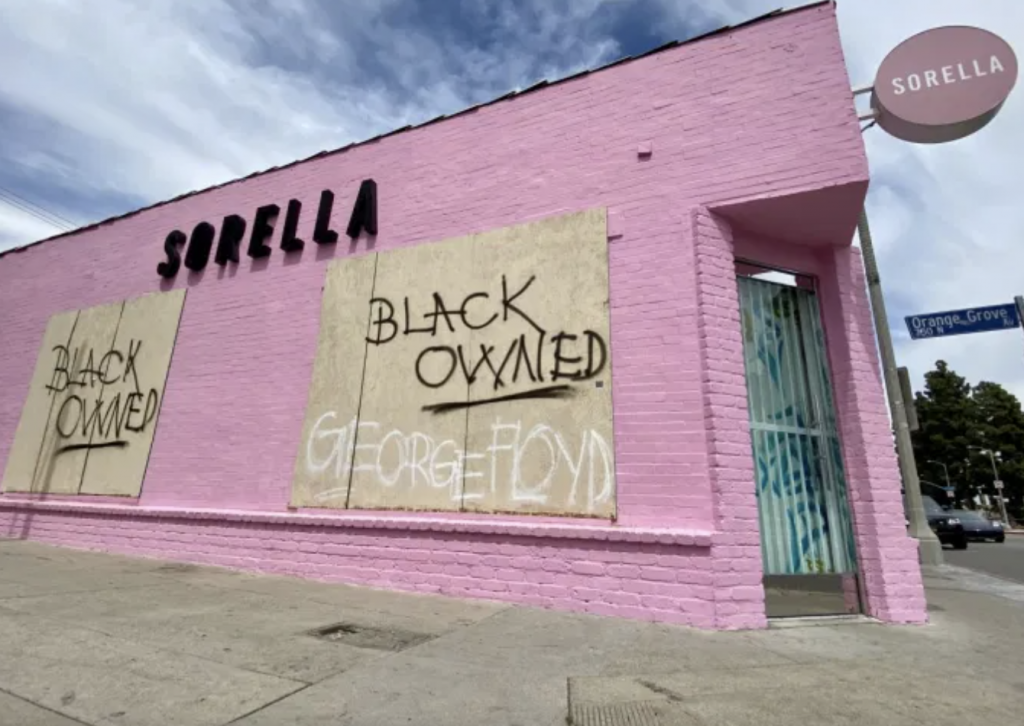
That morning she decided to board up her store and spray paint the walls with the words, “Black-Owned”. She believes if more people knew Sorella was a Black-owned business then protesters would have respected her store.
Sanders plans on keeping the store closed until the pandemic is over and hopes people will continue to shop online.
The Black Lives Matter movement and the pandemic continues to impact Black businesses all over the world, some for the better and some for the worse.
Regardless, Black entrepreneurs continue to take the steps necessary to thrive in the business world and reach a level of success.
